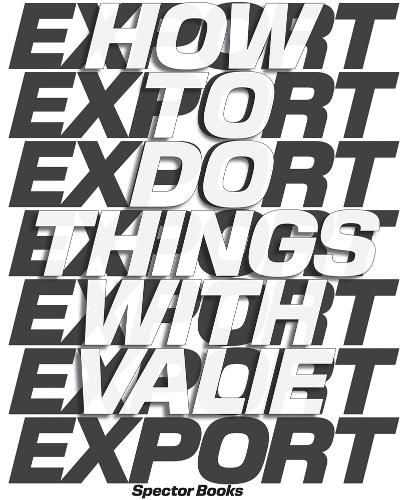Readings Newsletter
Become a Readings Member to make your shopping experience even easier.
Sign in or sign up for free!
You’re not far away from qualifying for FREE standard shipping within Australia
You’ve qualified for FREE standard shipping within Australia
The cart is loading…






Reexamining the works and legacy of the acclaimed multimedia feminist artist and their significance for today's world
Austrian artist Valie Export (born 1940) has produced one of the most significant bodies of feminist art in the postwar period, as a pioneer in the fields of photography, video and installation art. Her groundbreaking performances during the 1960s and 1970s introduced a new form of radical, embodied feminism to Europe, examining the politics of the body in relation to its environment, culture and society. This book showcases individual works by Valie Export and reflects on ways to transpose them into the present and pursue their political potential. The contributors touch on questions of identity and difference as well as the possibilities of communication and the refusal to communicate; the self-positioning of women, gender-nonconforming and disabled people in the fields of art, film and media; and the works' frames of reference--war, division, fragmentation, objectification and nonbelonging.
$9.00 standard shipping within Australia
FREE standard shipping within Australia for orders over $100.00
Express & International shipping calculated at checkout
Stock availability can be subject to change without notice. We recommend calling the shop or contacting our online team to check availability of low stock items. Please see our Shopping Online page for more details.
Reexamining the works and legacy of the acclaimed multimedia feminist artist and their significance for today's world
Austrian artist Valie Export (born 1940) has produced one of the most significant bodies of feminist art in the postwar period, as a pioneer in the fields of photography, video and installation art. Her groundbreaking performances during the 1960s and 1970s introduced a new form of radical, embodied feminism to Europe, examining the politics of the body in relation to its environment, culture and society. This book showcases individual works by Valie Export and reflects on ways to transpose them into the present and pursue their political potential. The contributors touch on questions of identity and difference as well as the possibilities of communication and the refusal to communicate; the self-positioning of women, gender-nonconforming and disabled people in the fields of art, film and media; and the works' frames of reference--war, division, fragmentation, objectification and nonbelonging.